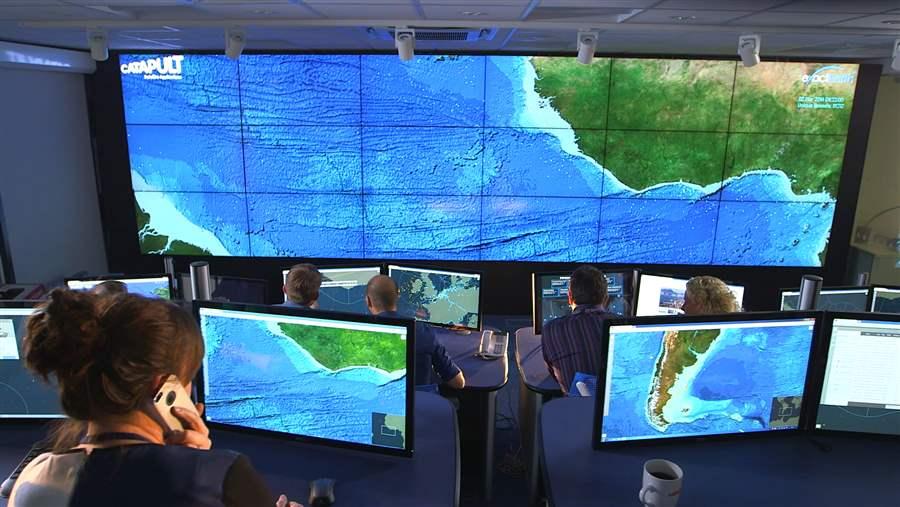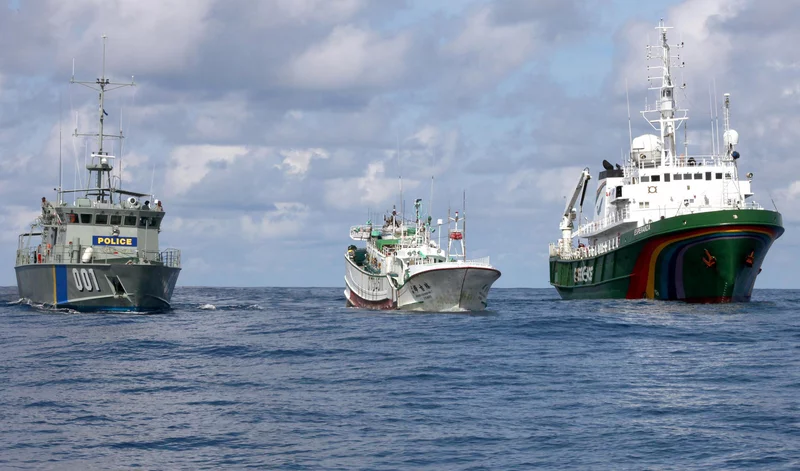Conservation to Prevent Extinction
Blue whale projection (credit: Racing Extinction)
The documentary Racing Extinction focuses on the wholesale destruction of wildlife in supplying the illicit trade in endangered species. Supplies of elephant ivory, shark fins, and rare medicinal plants feed this trade to satisfy demand in China, Hong Kong, Southeast Asia, and elsewhere. The film's producers exposed the multi-billion dollar trade using undercover taping of its operations. The trailer lays out the sordid situation:
The film investigated the 'supply chain' for the trade in shark's fins and manta rays destined for restaurants and medicinal shops in Asia. It all begins in remote coral reefs and other marine locations inhabited by the ancient fish in the Pacific Ocean. The depiction of the illegal fishing practice is tough viewing for its brutality. The film offered one example where "finning" had been halted by an Indonesia law declaring that fishing for sharks and mantas was illegal. Local villagers, who were originally had been part of the 'chain', were trained as guides for eco-tourist operations.
Likewise, Earth, A New Wild is a PBS produced mini-series narrated by M. Sanjayan, an ecologist, speaker, writer, and news commentator. The 5-episode series focuses on the role of mindful conservation in improving human well-being, wildlife, and the environment. Using segments filmed worldwide he narrates efforts in plains, forests, and marine ecosystems in stories presented in a "discovery" style of illustration. Each demonstrates how humans and wildlife can coexist and provide mutual benefits in this coexistence. The results provide a new way of thinking about conservation and sustainability and are hopeful examples for situations often seen as hopeless.
Like the TV series, NPR reported on new technologies to help stem the rate of over-harvesting of fish in the oceans. Gotcha: Satellites Help Strip Seafood Pirates Of Their Booty presents the use of remote-sensing, satellite monitoring to prevent illegal fishing. Marine protected areas surrounding the island nation of Palau were the case study. Working with the Pew Trust's Eyes on the Sea project and Sky Truth, a satellite monitoring organization, the government of Palau was able to apprehend illegal fishing boats in their marine conservation areas and protect their marine wildlife.


Satellite monitoring of fishing fleet movements (credit: PEW) & illegal fishing boat captured by Palau (credit: NPR)
These programs show how conservation goals can benefit people and wildlife. Howeve, they require being mindful and thinking differently about sustainability and environmental management. WHB